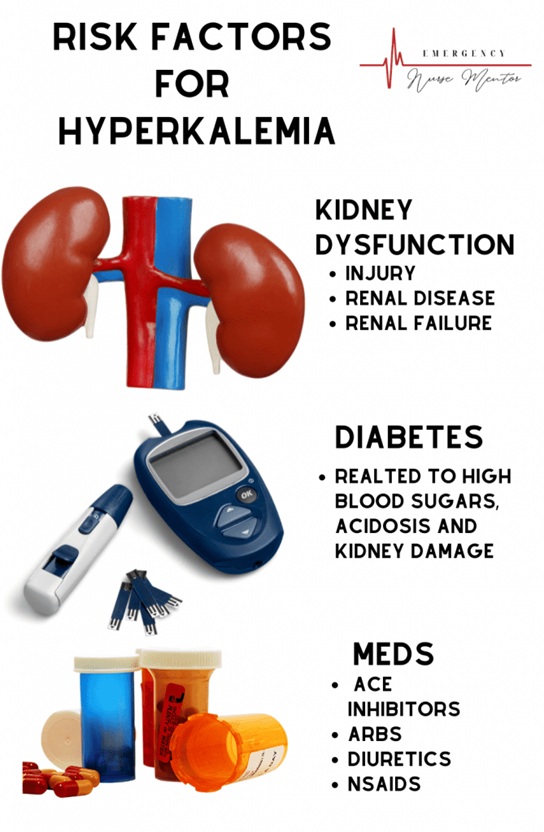A nurse is teaching a client who has acute kidney injury about dietary sources of potassium. Which of the following statements by the client indicates an understanding of the teaching?
"I will enjoy eating cantaloupe for my morning snack."
"I can easily add baked potatoes to my diet."
"Eating yogurt will be a new experience."
"Adding pecans will be a change I can readily make."
The Correct Answer is D
Choice A rationale: Cantaloupe is high in potassium. Clients with acute kidney injury (AKI) have impaired potassium excretion, and consuming high-potassium foods increases the risk of hyperkalemia, which can lead to cardiac arrhythmias.
Choice B rationale: Baked potatoes contain significant potassium, especially in the skin. In AKI, potassium retention is dangerous, so this choice reflects poor understanding of dietary restrictions for renal safety.
Choice C rationale: Yogurt is rich in potassium and phosphorus. In AKI, both electrolytes may accumulate due to reduced renal clearance, making yogurt an inappropriate choice without close monitoring.
Choice D rationale: Pecans are low in potassium, making them a safer snack for clients with AKI. Choosing low-potassium foods demonstrates appropriate understanding of renal dietary management.
Nursing Test Bank
Naxlex Comprehensive Predictor Exams
Related Questions
Correct Answer is D
Explanation
Choice A reason: Hypernatremia, which is an abnormally high level of sodium in the blood, is not typically associated with prerenal AKI. Prerenal AKI is often related to hypovolemia, which can lead to hyponatremia rather than hypernatremia.
Choice B reason: Hypophosphatemia, or low levels of phosphate in the blood, is not a common finding in prerenal AKI. Phosphate levels are more often affected in intrinsic renal diseases or refeeding syndrome.
Choice C reason: Hypercalcemia, or high levels of calcium in the blood, is not commonly seen in prerenal AKI. It is more frequently associated with malignancies or hyperparathyroidism.
Choice D reason: Hyperkalemia, which is an elevated level of potassium in the blood, is a common electrolyte imbalance in prerenal AKI. This occurs due to decreased renal perfusion and the kidney's reduced ability to excrete potassium.

Correct Answer is B
Explanation
Choice A reason: While a low-protein diet can help manage electrolyte imbalances, it is not specifically targeted at reducing the risk for hyperkalemia. Hyperkalemia is more directly managed by restricting foods high in potassium.
Choice B reason: A low-protein diet helps reduce the risk for uremia, which is the accumulation of waste products in the blood due to impaired kidney function. By consuming less protein, there is less urea and other nitrogenous wastes for the kidneys to filter, which can help delay the progression of kidney disease.
Choice C reason: Edema is related to fluid retention and not directly to protein intake. A low-protein diet does not specifically reduce the risk for edema unless it is associated with kidney dysfunction affecting fluid balance.
Choice D reason: A low-protein diet will indeed decrease the amount of nitrogenous waste in the blood because less protein breakdown means less waste for the kidneys to remove. However, this choice is less specific than Choice B, which directly addresses the condition of uremia that is a concern for patients with chronic kidney failure.
Whether you are a student looking to ace your exams or a practicing nurse seeking to enhance your expertise , our nursing education contents will empower you with the confidence and competence to make a difference in the lives of patients and become a respected leader in the healthcare field.
Visit Naxlex, invest in your future and unlock endless possibilities with our unparalleled nursing education contents today
Report Wrong Answer on the Current Question
Do you disagree with the answer? If yes, what is your expected answer? Explain.
Kindly be descriptive with the issue you are facing.
